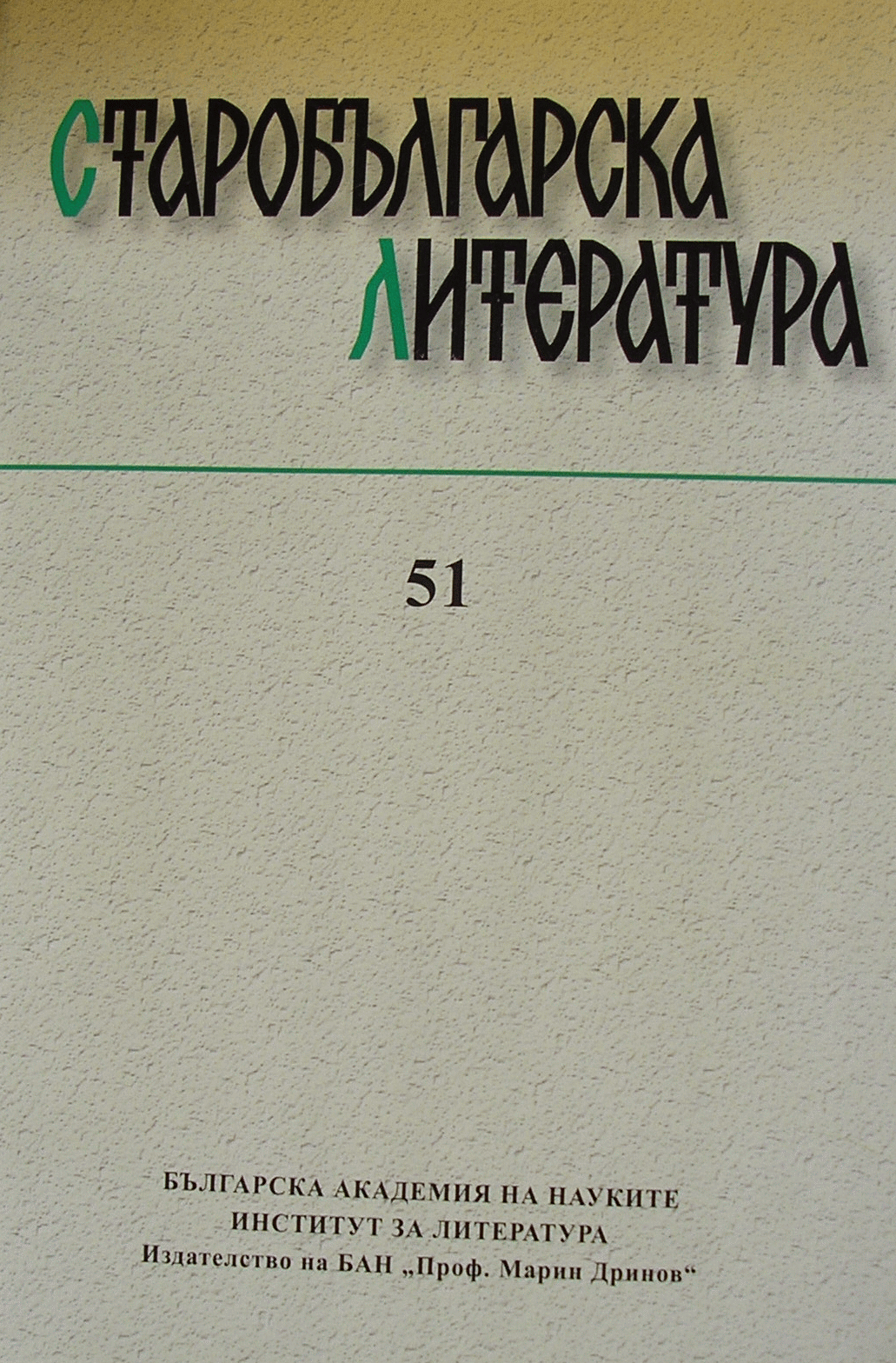
We kindly inform you that, as long as the subject affiliation of our 300.000+ articles is in progress, you might get unsufficient or no results on your third level or second level search. In this case, please broaden your search criteria.

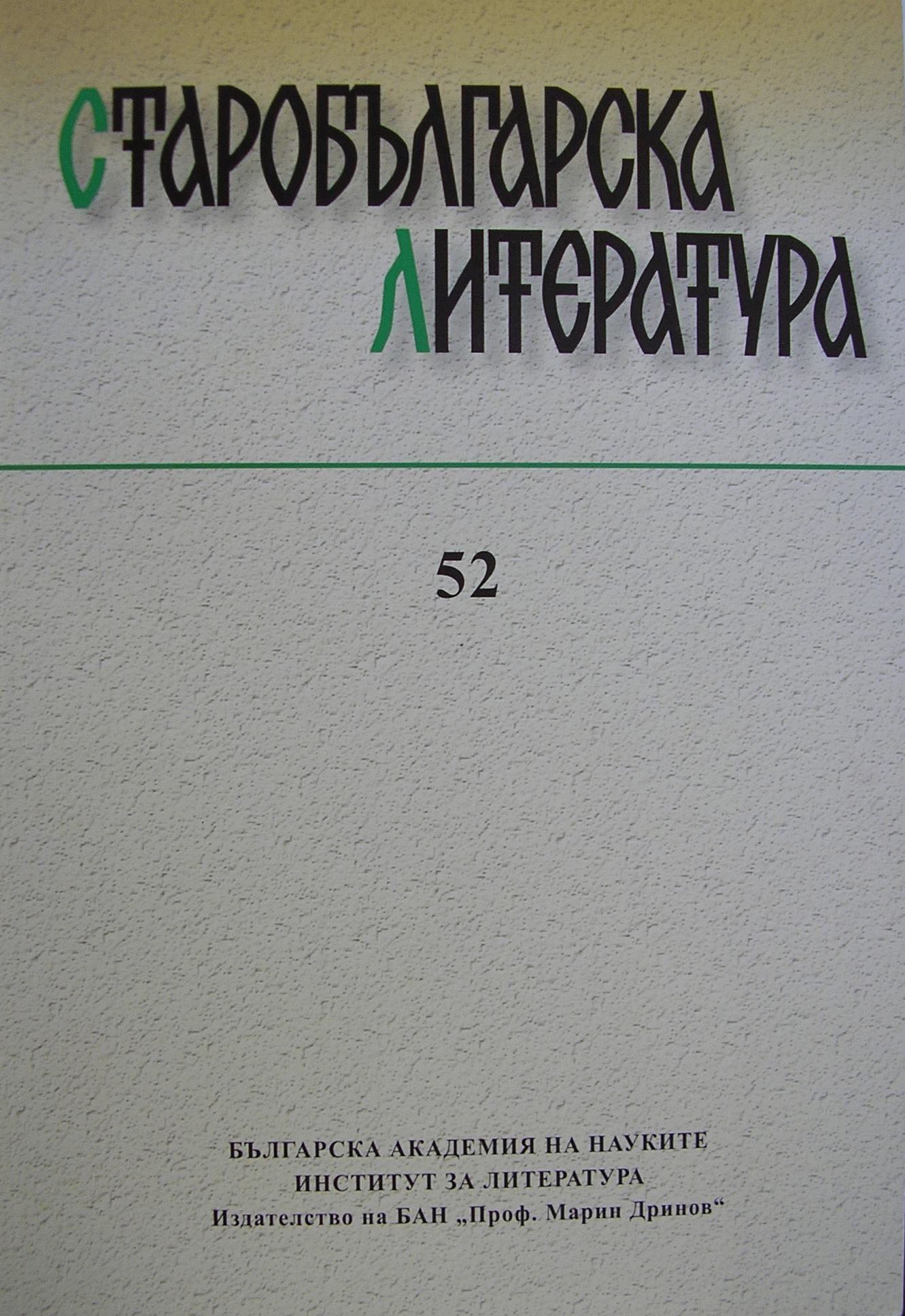
St. Mark the Ascetic (4th century) is one of the most famous Egyptian anchorites. His writings are often included in monastic collections in both the Byzantine and Slavic traditions. The Epistle to Nicholas is particularly popular because it explicates the rules for an ascetic life. The earliest Old Church Slavonic translation dates from the 10th century and is preserved in a miscellany from the Hilandar monastery No. 382 from the 13th–14th century. While part of the corresponding folia in the Hilendar codex has been lost, MSS 72 (14th c.) and 310 (16th c.) from the Library of the Rumanian Academy (Bucharest), which go back to the same group of manuscripts, allow us to reconstruct the archetype. The selective translation adapted from the Greek original illustrates well the work of the medieval Bulgarian bookman. In the 14th century, a new version of the same text was created in Bulgaria, as attested in MSS Hlud 237 and Vienna 42, which was the result of a new collation of the Old Bulgarian translation with the Greek text. The Slavonic tradition of this text is an example for the existence of multiple translations and versions of one and the same work in old Slavic florilegia.
More...
The atricle addresses the canons for the Bodiless Powers that appear in the Menaion for the feasts under November 8 (Synaxis of Archangel Michael and the Other Bodiless Powers), September 6 (The Miracle of Archangel Michael at Chonae), March 26 (Synaxis of the Archangel Gabriel), and July 13 (Synaxis of the Archangel Gabriel). We examine the Slavonic translations of these Greek works made in a Slavic milieu and the transmission of their manuscripts. Special attention is paid to the only two original Slavonic canons that are known to scholars to date: the anonymous Просвѣщьи древле ѹмꙑ and the canon by Constantine of Preslav, Припадаѭща мѧ боже приими щедротами си. The data for each individual work – its manuscript tradition, the extent of preservation and substitution of strophes from other canons work – allow us to draw conclusions about the time when the Greek canons were introduced into the Slavonic context and the way the original works were disseminated immediately after their composition work – a time from which we have no direct manuscript record.
More...



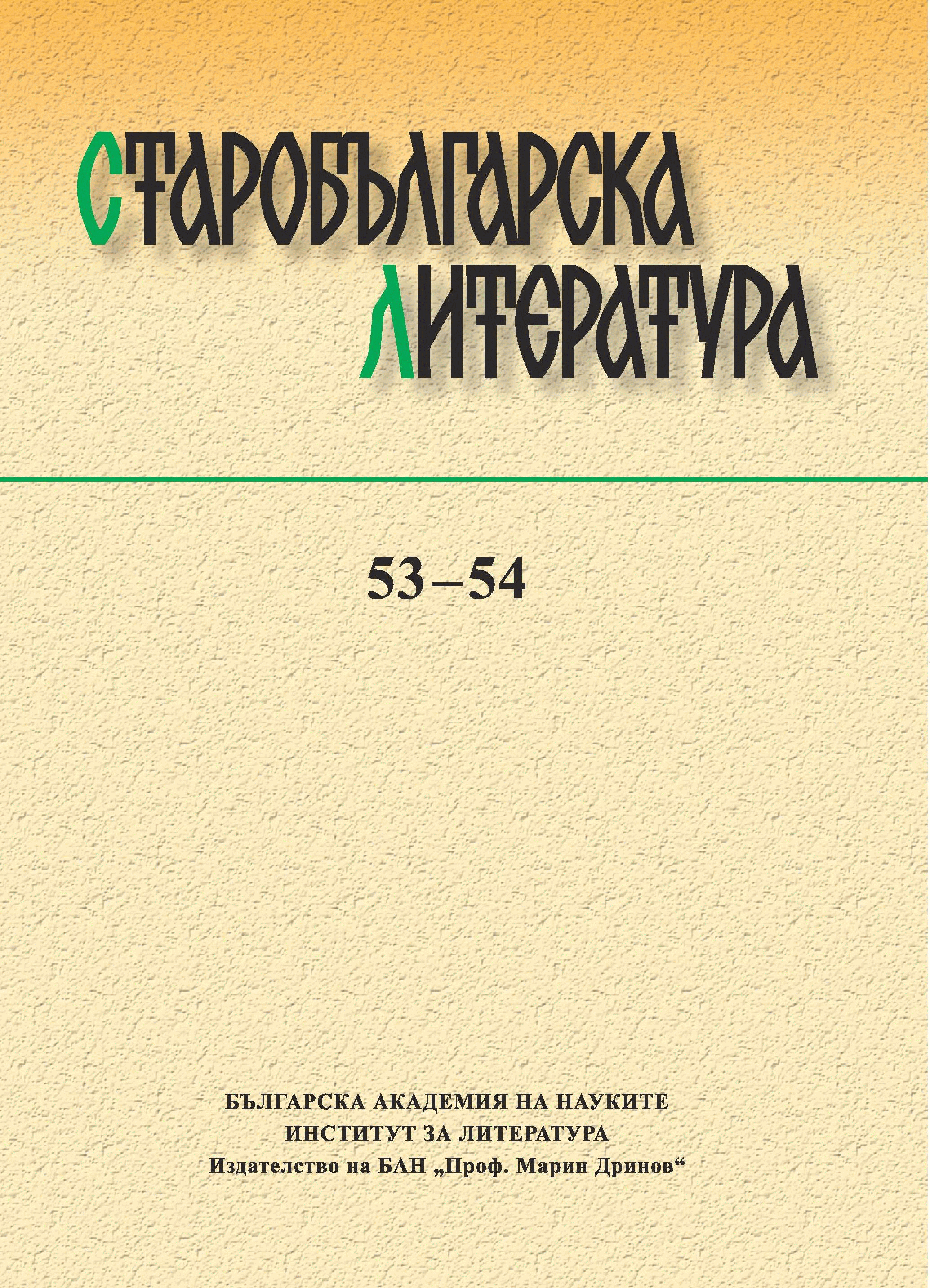
Ms. Sl. 156 (RA156) is an extensive Pentecostal Panegyric which includes texts from Holy Week through the Sunday of All Saints. The manuscript is incomplete, but its largest lacuna has been filled up from a miscellany of fragments in the collection of P. A. Shchukin, the State Historical Museum in Moscow. The fifth fragment of Shchuk 369 (Shchuk 369/V), located on Fol. 56r-68v according to the general foliation of the textual body, comprises folia that have been extracted from two different parts of a single jer manuscript. The first group of texts is related to Thomas Sunday (10 fol.), the second to Ascension (3 fol.). The manuscript dates from the 1320s-1330s. It has no jers and was written on Mt. Athos, then evidently transported to Romania by Paisii Velichkovski. This codex reveals a notable correlation between the orthography and the arrangement of the texts within each cycle of feasts, which sets it apart from other known South Slavic panegyrica and suggests that there could have been more than one protograph of the Pentecostal Panegyric.
More...
This paper proves that Jan Hus and Constantine Kostenečki—two refromers of the early 15th c. whose activities seem to be rather similar at first sight—had completely different approaches to the language question. Jan Hus was a pioneer in his fight to introduce the Czech language as a language of the Holy Scriptures, whereas Constantine Kostenečki strived to reform a written language with more than a five-century long history. Unlike Hus, who according to the extant sources hardly knew anything about Serbia, Constantine had enough information about the Hussite movement and the political situation in the Czech lands, since his sovereign, despot Stefan Lazarevič, was a vassal to the Hungarian King, Holy Roman Emperor Sigizmund, and took part in the anti-Hussite military campaign of 1421. And even though Constantine created the norms of Resava School which for centuries influenced the Orthodox written tradition while Hus’s ideas came to fruition only after his death, Constantine Kostenečki remained deeply rooted in the Middle Ages whereas Jan Hus came to be seen as a precursor of the Modern Age.
More...

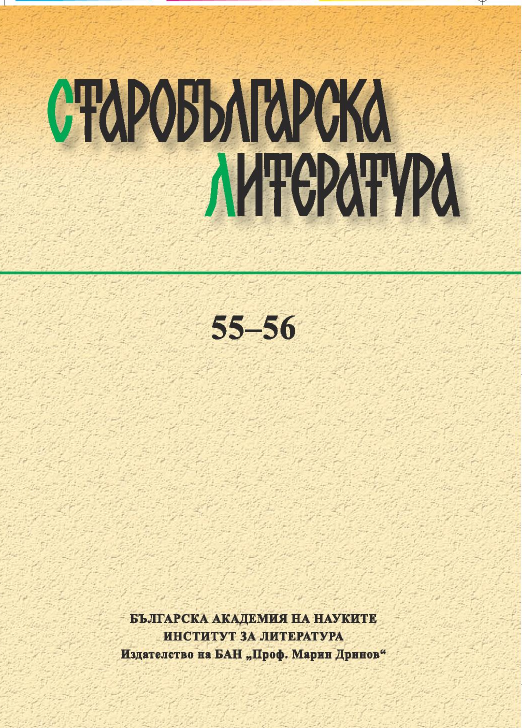
This article goes back to the dawn of Byzantine Studies and takes a look at several periodicals and prefaces to editions from the years 1892–1904. One of the main objectives of the article is to follow the scholarly debate between Karl Krumbacher (1856–1909) and Ludwig Radermacher (1867–1952) on the methodology of editing Byzantine texts. From Krumbacher’s criticism and Radermacher’s response one can single out the main issues in dealing with Byzantine manuscripts. And since Krumbacher – the founder of modern Byzantine studies – was a prolific and diligent reviewer, his critical reviews and other writings reveal his stand on this topic. This is the other, more general purpose of the paper – to collect and summarize Krumbacher’s editorial principles. They set a standard that is still in use in medieval studies today. At the same time, even 120 years later, new manuals on editing medieval texts keep emerging, addressing practical as well as theoretical problems.
More...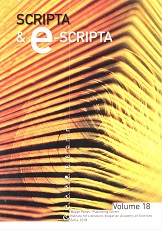
The paper introduces a project on edition and linguistic annotation of Medieval and Early Modern South Slavic manuscript fragments. The main topic is implementation of various approaches on integration of electronic edtion, manuscript description and linguistic annotation. A corpus will include fragments from parchment manuscripts kept in Bulgarian repositories. We will illustrate the approach with several pieces of texts from various fragments. The representation will be supplied with textual, as well as part-of-speech and basic syntactic annotation. On the basis of it an attempt will be made at experimental anaphora and related morpho-syntactic annotation. The work will offer a discussion on the features that will be useful for such annotation. The project relies on eXist database (http://exist-db.org) and the initiatives: Repertorium (http://repertorium.obdurodon.org/), PROIEL (http://www.hf.uio.no/ifikk/english/ research/ projects/proiel/) and TOROT (http://site.uit.no/slavhistcorp/files/2015/04/Eckhoff.pdf).
More...
The paper discusses problems and points of view related to set up networking between Scripta Bulgarica project (http://www.scripta-bulgarica.eu/bg), Repertorium of Old Bulgarian literature and letters (http://repertorium.obdurodon.org/), and also other corpuses (e.g. Codex Suprasliensis from the 10th century: http://suprasliensis.obdurodon.org/, etc.) for further improvement of linking between data bases. The proposed networking will connect transcribed texts with terminology in palaeoslavistics, and other on-line resources, such as electronic editions of individual sites, electronic dictionaries, encyclopedias, bibliographic arrays and so on. The networking will decided a number of problems that can not yet solve in a satisfactory way. The results will be useful not only for the palaeoslavists but also for librarians, teachers, and students, representatives of mass media and the general public interested in Slavic literacy.
More...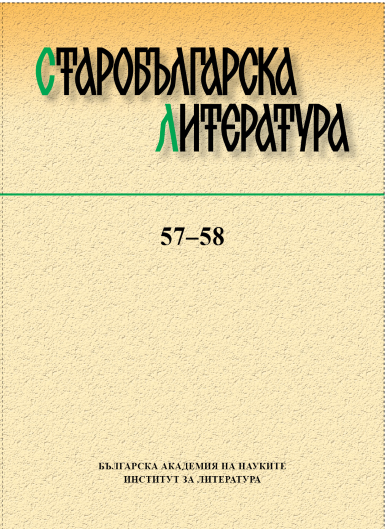
The article studies the South Slavonic tradition of the biblical Book of Genesis, preserved in eight copies from the 15th–16th century. The orthographic and phonetical features, text structure, and the segmentation of the text by headings in all known South Slavonic copies point to a common Middle Bulgarian hyparchetype (х1) of Turnovo provenance, dating from the fourteenth century. This hyparchetype apparently had mechanical defects – missing or misplaced book chapters from the Оctateuch, and included as interpolations at least two excerpts from Palaea Historica and three unidentified non-Biblical fragments. Significantly, it segmented the text of the Book of Genesis (Оctateuch) by means of interpretative titles that, in addition to their exegetic function, most probably had a liturgical role. These headings were secondary to the translation and could be attributed to scolarly activity in Turnovo. The Middle Bulgarian hyparchetype (х1) generated at least two copies that turned into protographs (P1 and P2). P1 served as the foundation of Wallachian-Moldavian manuscripts (such as GIM–Moscow, Barsov collection, No. 3; Collection of the Romanian Academy of Sciences No. 85; RGB–Moscow, Rumyantsev collection, No. 29), whereas P2 gave rise to the five manuscripts originating from Western Bulgarian lands and Serbia (RGB–Moscow, Grigorovich collection, f. 87, No. 1/М 1684; Library of the Croatian Academy of Sciences and Arts in Zagreb, No. ІІІ.с.17; RGB–Moscow, Sevastiyanov collection, f.270, No. 1/M. 1431; Church-Historical and Archival Institute, Sofia, No. 351; Krushedol Monastery, No. 81). While P1 restricts the additional headings only to the main text, P2 expands their use to the manuscript’s margins as well. P2 includes also a short description and interpretation of the first five Old Testament books.
More...
The paper describes briefly the most important orthographic and morphologic features of MS 1039 from the National Library in Sofia, known as Stanislav’s Menologion. The manuscript contains an old hagiographic collection for September, October and the first eleven days of November that could be traced back to the First Bulgarian Kingdom and the rule of Tsar Petar. The codex appeared in a difficult political and cultural situation after the defeat of the Bulgarian Tsar Michael Shishman in 1330, when a part of the Western Bulgarian lands were subjugated to Serbian rule. The author aims to identify the Bulgarian and Serbian features on orthographic, phonetic and morphological levels in order to establish the hypothetical antigraph of the codex, and concludes, on the base of the analysis, that the compilation was copied from a sophisticated Middle Bulgarian manuscript that shared the linguistic and orthographic characteristics of the Tǎrnovo written tradition before Patriarch Euthymius’ reform.
More...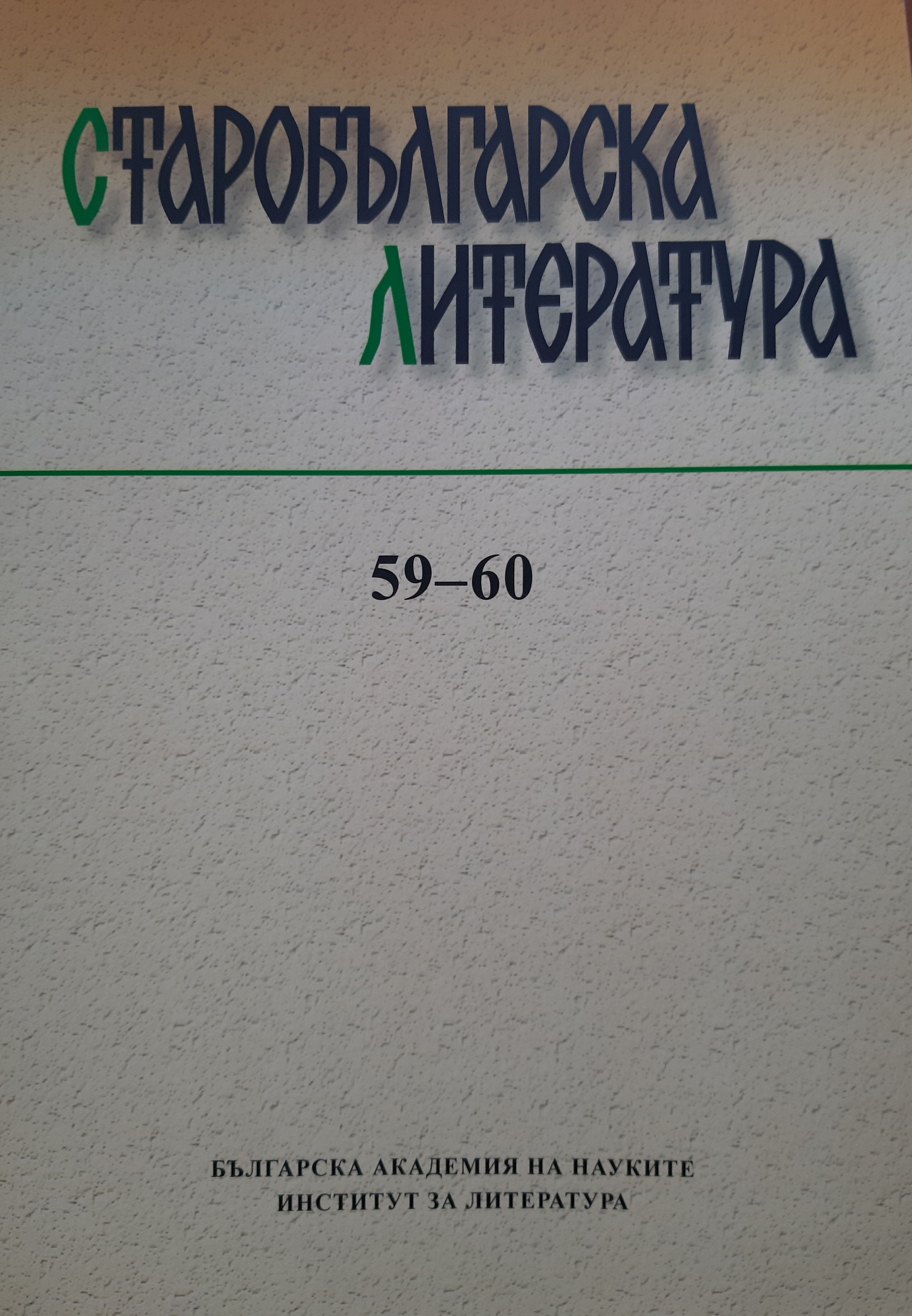
This study is based on the notated repertory in the Greek Oktoechos prior to the 13th century. The notated Ocktoechos was included as the last section of one of the principle notated books – the Sticherarion. Four cycles were systematically notated in the early (pre-thirteenth-century) Greek Sticheraria– the anatolika and alphabetika stichera with theotokia, usually attributed to John of Damascus, the anabathmoi attributed to Theodore the Studite, and eothina stichera attributed to Emperor Leo VI the Wise. Some sources featured also the exaposteilaria attributed to Emperor Constantine VII Porphyrogennetos. These notated cycles are explored here in the context of the Typika used at the time – the Hypotyposis of Theodore the Studite, the Typikon of Alexios the Studite, and the Typikon of Evergetis. The early copies of the Hypotyposis do not mention the anatolika and alphabetika stichera. The Typikon of Alexios the Studite, which is based on the earliest copies of the Hypotyposis from the second half of the 10th century, prescribes only resurrectional stichera after both Psalm 140 at Vespers and Psalms 148-150 at Orthros. The Typikon of Evergetis, which reveals a very strong neo-Sabaite influence, already prescribes the anatolika and the alphabetika stichera. Hence, we consider the 11th century a watershed in the formation of the notated repertory of the Oktoechos. We propose that the four cycles included in the earliest notated Oktoechoi were probably notated because they were new for the liturgical practice in the region of Constantinople from the 9th through the 11th centuries (as either newly compiled or newly composed works).
More...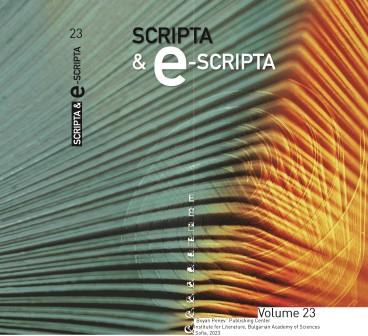
The present study offers a comparative evaluation of the performance of different AI-based digital tools for handwritten text recognition (HTR) on historical manuscripts and prints. The focus is on generic models capable of transcribing a range of texts in a similar script. The training dataset for these comprises Old Cyrillic ustav and poluustav manuscripts, on the one hand, and early Glagolitic printed books, on the other. We give an overview of the performance statistics for the HTR platforms Transkribus and eScriptorium as well as for the command-line tool Calamari. In each case, we additionally offer a close, qualitative analysis of select examples in order to convey a sense of the models’ real-world performance. In this way, our study supplies comparative data on the respective capabilities of these technologies that ought to be of interest to scholars working with them in digital humanities projects.
More...
The article discusses theoretical and practical issues of creating tools for demonstrating medieval Slavonic text corpus at the “Manuscript” website (http:// manuscripts.ru/). The specific features of the historical corpus and its sources are: the limited number of manuscripts, variability of medieval graphics and orthography, complex structure, and composition of original documents. They require special instruments and techniques for data preparation (information about a text and its physical media, analytical tagging of fragments, variability, and other), and visualization of data sampling, including texts. The article focuses on the ways of solving two opposite tasks: the texts’ demonstration in a form as close as possible to the original and their simplified form, and, consequently, the possibilities of their transformation. The first task should be solved by preparing a transcription via a specialized editing tool, which interacts with the full-text database with a complete set of required characters, text formatting, and make-up to fit the original page. To solve the second problem, analytical tagging (chapters and verses, authors of texts, structure of manuscript, main text and marginalia, and so forth) and linguistic tagging (including lemmatization) are performed to make data search and data transformation available when displayed. The latter allows users to see a text in modern Cyrillic or Latin, syllables, meaning of analytical fragments, links between the main text and its marginalia, and so forth. The ability to data search based on deep tagging and the digital edition (LIM, MS 37, 13th c., 291 f.) which has been included in the “Manuscript” historical corpus (http://manuscripts.ru/mns/main?P_TEXT=94065041&p_lang=EN).
More...
No Horologion (“Book of the Hours”) has survived in the Old Church Slavonic corpus. Since early Russian sources, however, tend to retain South Slavic liturgical traditions, the authors attempt to reconstruct such a book for daily prayer on the basis of Russian manuscripts from the 13th–14th centuries. A key factor in the reconstruction are the so-called kata stichon hymns, an archaic genre of Byzantine hymnography used for night prayer. The authors analyze the text and meter of these hymns, including one hymn originally composed in Slavonic in imitation of the Byzantine genre, and argue that the later Russian sources reflect an Horologion translated in Bulgaria in the late 9th or early 10th century.
More...